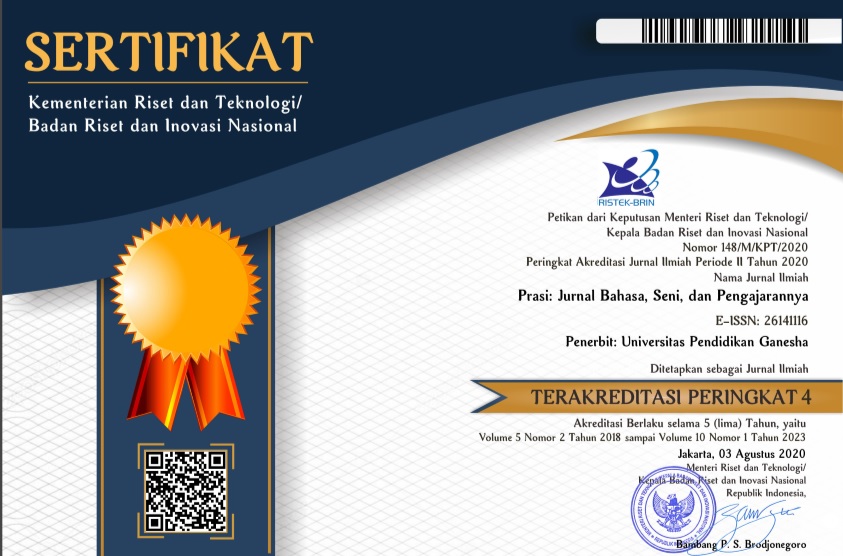NILAI KEARIFAN LOKAL BALI DALAM MATERI PEMBELAJARAN BAHASA BALI DI SMA KELAS X SE-KOTA SINGARAJA
DOI:
https://doi.org/10.23887/prasi.v9i18.8946Abstract
This study was conducted to determine the language learning materials Bali containing the values of local wisdom and to know the types of local wisdom contained in Balinese language learning material in high school Class X in Singaraja. This study used a qualitative descriptive analysis, the results of this study indicate that the material in the book that is used in Bali to discuss learning in high school Class X in Singaraja basically about four language skills. The fourth aspect of the language skills developed in the collection of material that is as discourse, basic vocabulary, and Crete bases. Of whole language learning material in Bali, local moral values exist in the material discourse. Through discourse material that contains the values of local wisdom will provide extensive knowledge, imparting of knowledge, broaden your horizons, and transform values in students, so it can be said that the values of local wisdom in Balinese language learning materials related to values education character in Balinese language discourse material.
Key words: local moral values, character education, language learning materials Bali.
Downloads
Published
Issue
Section
License
Authors who publish with Prasi agree to the following terms:- Authors retain copyright and grant the journal the right of first publication with the work simultaneously licensed under a Creative Commons Attribution License (CC BY-SA 4.0) that allows others to share the work with an acknowledgment of the work's authorship and initial publication in this journal
- Authors are able to enter into separate, additional contractual arrangements for the non-exclusive distribution of the journal's published version of the work (e.g., post it to an institutional repository or publish it in a book), with an acknowledgment of its initial publication in this journal.
- Authors are permitted and encouraged to post their work online (e.g., in institutional repositories or on their website) prior to and during the submission process, as it can lead to productive exchanges, as well as earlier and greater citation of published work. (See The Effect of Open Access)


.png)
.png)









